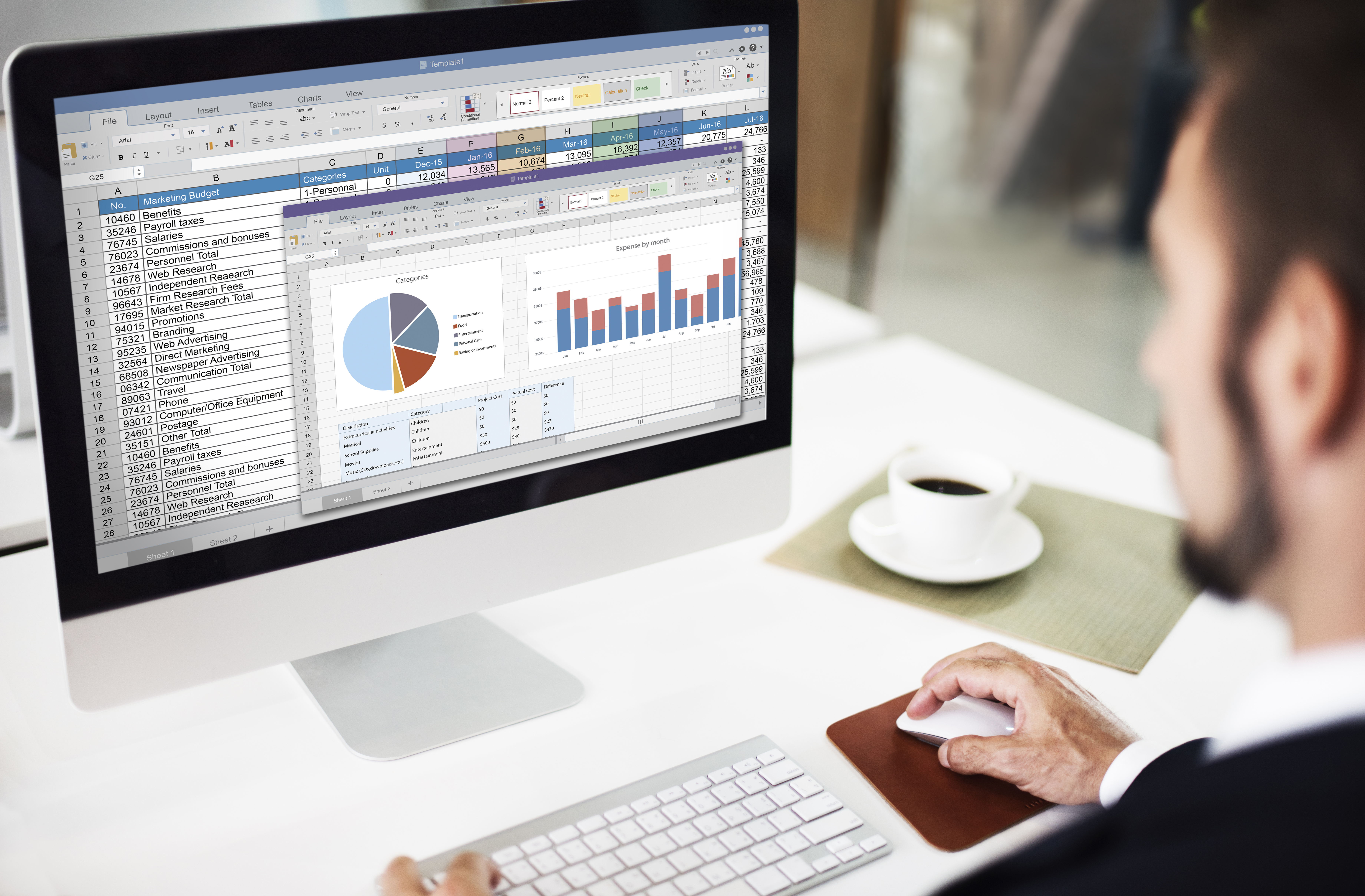Managing the finances of a manufacturing company is one of the most challenging tasks, as it requires overseeing financial accounts, preparing and submitting tax reports, reconciling transactions, and organizing income and expenses. These activities involve thousands of transactions, often amounting to millions of dollars, and the combination of various accounting practices can make financial reporting complex and time-consuming.
Given these complexities, it's no surprise that the Accounting Software Market was valued at $12.01 billion in 2020, according to Mordor Intelligence. Financial software provides manufacturers in the U.S. with a convenient and efficient way to manage their finances. By automating many processes and offering detailed insights, it reduces the risk of human error and saves valuable time. In this article, we highlight the seven best financial tools for manufacturers, showcasing how these solutions streamline accounting functions and ensure greater financial control.
Additionally, with the increasing focus on data security, many accounting software solutions now offer enhanced encryption and compliance with industry standards, providing manufacturers with peace of mind when handling sensitive financial information. Furthermore, cloud-based financial tools are becoming increasingly popular as they allow for easier collaboration and access to real-time data, which can be especially beneficial for businesses with multiple locations or remote teams.
Why Manufacturers need financial tools
Manufacturers primarily use financial tools to help organize a business’s finances. But like any other business, they can adopt financial tools to monitor the markets and help them figure out when to invest. Financial software gives access to insights that can help change financial performance.
Accounting or ERP tool: When does investing in each make sense?
Accounting software has just as much to offer as ERP tools. It can cover all economic basics such as managing expenses and revenue. ERP does the same, but the differences are not just in the semantics.
For instance, accounting software only stores specific data, while ERP creates a doorway to every critical piece of data concerning a business. Application of either of them makes sense at various times.
When to invest in ERP:
- When looking to get reliable and precise data about your profit drivers
- If you want to improve performance through prediction
- Since it facilitates customization, to tackle various business problems instead of changing the running of your manufacturing business
Invest in accounting software:
To adopt simple tools that will ease work that involves calculations by hand If you are looking to perform tasks like bookkeeping in simple steps For full access to information in one place saves time since there is not much to dig into
Your options for upgrading
Upgrading options vary from simple cloud-based accounting tools to integrating industry-oriented ERP software. Before implementing upgrades, it’s essential to study the impact either of them will have on your investments. There are at least four upgrading options to consider.
-
Industry-Specific ERP: You can get standard ERP capabilities from these options. It’s more capable of managing industry-specific requirements.
-
Light ERP Software: The best thing about Light ERP Software is that it can support numerous uses and is cloud-based. Light ERP software or mid-markets accounting software includes inventory management and budgeting, reporting, and consolidating features.
-
Cloud-based Accounting software for small businesses: A modern accounting package can do everything that involves finances in an organization.
-
General Purpose Mid-Market ERP: General purpose Mid-market ERP can integrate throughout a business. It comes with features to manage customer supply chain, logistics, and sales.
Essential financial tools every manufacturing company should have
These are the financial tools that will ensure you run a successful manufacturing business:
1. Tax preparation tools
Filing taxes is problematic, especially for large companies, considering they have to attach all receipts during the process. Tax preparation software can make the process less painful. They will help sort out receipts, essential for preparing and filing tax returns.
One of the best software for this is TaxSlayer Pro, feature-rich software. It is the software of choice for large organizations that need a robust tool to handle plenty of business tax returns. TaxSlayer is also scalable, which means there’s very little it won’t do. It will capably handle tasks ranging from tax preparation to filing.
2. Manufacturing accounting software
From purchases to sales, manufacturing companies handle many financial transactions requiring documentation. It would help if you had software that can handle material requirements planning (MRP), manufacturing execution software (MES), and customer relationship management (CRM). That software is likely an enterprise resource planning (ERP) system, powerful software that can handle manufacturers’ operations and financial transactions.
The best example of such software is Oracle’s NetSuite, which offers seamless real-time integration of a global network of partners and suppliers. NetSuite features accounting and financial management, inventory, warehouse management, e-commerce capabilities, customer management, and order management.
On the other hand, QuickBooks Desktop Enterprise for Manufacturing has the necessary tools to manage inventory and sales fulfillment. Additionally, QuickBooks allows you to keep track of all costs, from bill of materials (BOM) costs, including overhead and labor, to finished products. Moreover, use the software to plan labor allocation and create production forecasts.
3. Credit & AR management (Net-terms-as-a-service tools)
Accounts receivable (AR) software are great for automating your company’s payments, invoices, collections, cash application, and credit management. That way, you will have a better idea and control over your cash flow cycle.
Resolve is one such software, offering comprehensive credit management and net terms service. It provides a service that runs a quick credit check on customers within minutes. Further, Resolve can take charge of all your credit assessments, eliminating the need for hiring accounting staff to run your net terms service. Resolve’s net terms and credit management service will provide invoicing, payment processing, and collection.
4. Expense tracking
You have to keep a constant check on expenses throughout the company. Expense tracking software comes in handy as they analyze spending habits relating to travel, payroll, inventory, and business-related expenses to develop cost-saving resolutions.
As an expense management software, Certify offers deep tracking of corporate spending. This software allows you to generate employee expense reports and supports 40 languages and 140 currencies.
The software even helps automate accounts payable processes for invoice management. It is the ideal accounting management app with seamless implementations, end-user and accountant training, countless resources, and always-on support.
5. Financial budgeting tools
The sheer scale of manufacturing processes and changes in the market environment makes budgeting for a manufacturing corporation a real headache. If you don’t have a budgeting tool, that is.
Financial budgeting software helps manage, monitor, design, alter, and plan your finances. These are not accounting software that primarily tracks current expenses–these are forward-facing software aimed at helping you plan expenditure well into the future.
Workday Enterprise Management Cloud helps manage financial applications, human capital, and resource planning. This software offers real-time insights into people, finances, and operational data. Workday allows you to budget, execute, and analyze the results. With the software, you can make minor adjustments along the way to fine-tune the business performance.
6. Payroll management
A company like Walmart employs 2.3 million workers. Preparing and reconciling the payroll can’t be a fun job. Thankfully, plenty of payroll management software makes the process bearable.
Take QuickBooks Payroll, for instance. It is a cloud-based payroll software that enables you to pay employees, manage employee benefits, and file income taxes. It even throws in human resource management capabilities in there as well.
This software allows you to create paychecks complete with automatic tax calculations and e-filing. You also get automatic tax withdrawal to avoid lump sum tax bills. Payroll allows you the option of directly depositing employees’ payroll to their checking or savings account.
7. Manufacturing business intelligence
According to a Deloitte survey, 93% of manufacturing companies believe AI will drive innovation in the industry. One such use case is in Manufacturing Business Intelligence (BI), where the software will retrieve data, analyze it, and present it in an easily digestible format.
Sisense is a fine example of BI software that can access and simplify cloud data. It harnesses the power of AI to create relevant business trends from a ton of what would otherwise be incoherent datasets. Moreover, Sisense comes with AI-driven embedded analytics that infuses intelligence at every part of the business.
Summary
Integrating some of the finest financial tools will make your organization run more efficiently. Financial tools are applicable at various levels in manufacturing, from employee payroll to accounts receivable and credit management.
To get started, a manufacturer needs to find a way to combine all the tools to create a single model that will run seamlessly. It is also essential to develop a model that would adjust as a company grows.







